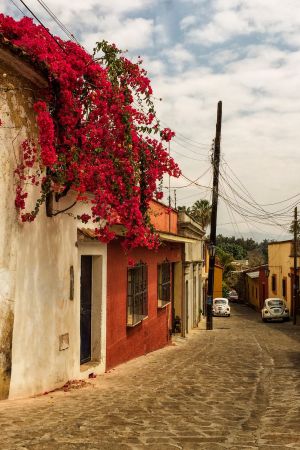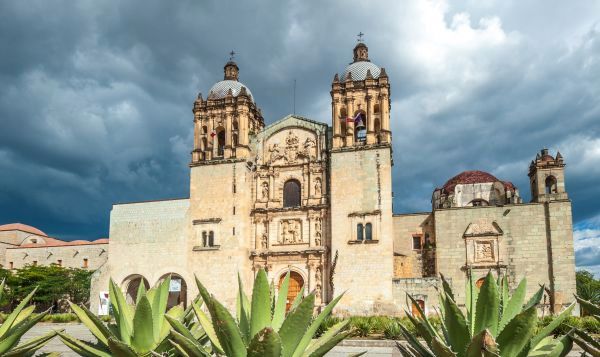Oaxaca, Mexico - On September 7, an 8.1-magnitude earthquake rattled Mexico, shaking people out of their beds from the epicenter in the southern state of Chiapas to Mexico City some 600 miles away. It was the strongest earthquake to hit the country in over a century and has led to at least 100 deaths.
Worst hit were the Istmo region of Oaxaca and the mountainous Mixe region in the same state, and efforts are still under way - by the government, international nonprofits, and local communities alike - to provide relief to those most affected by the quake.
While this earthquake was a tragedy for Mexico and was followed by three days of national mourning, word is also coming from Oaxaca City that tourists are canceling their trips to the state capital out of fear of aftershocks.
 |
Hotelier Jaime Amaro reported a drop in room occupancy from 70 percent to less than 10 percent immediately after the earthquake and even had two days with an empty hotel. Speaking to other partner businesses - tour operators, restaurant owners, hoteliers - he found all of them reported "a noticeable standstill in business."
Chef and restaurant owner Pilar Cabrera is also concerned about the long-term effect of the news on the tourist industry in Oaxaca City. "Tourists who had planned to come for the Day of the Dead, [one of Oaxaca's busiest times of the year], are scared to come. They don't realize that the Istmo is four hours from here."
Oaxaca is Mexico's fifth-largest state and the capital city sits in a valley surrounded by mountains on all sides. Juchitán and other towns in the Istmo hard hit by the quake are a four- to five-hour drive away, as is the Sierra Mixe, much of which sits above the clouds. Unfortunately, however, since the capital city has the same name as the state, "the news says Oaxaca and tourists think that the houses in Oaxaca City have collapsed," Cabrera says with concern.
In a show of solidarity not uncommon for the state, communities across Oaxaca are collecting and delivering supplies to those affected, but concern in the state capital about the potential effect on tourism is very real. Oaxaca has little private industry and relies heavily on the tourist trade. Some 400,000 people across the state make their living from tourism or hospitality - an industry that correlates to 8.2 percent of the national GDP - and people choosing to stay away creates a precarious situation beyond the earthquake.
"The earthquake has shaken up the most impoverished areas and our help really is needed there, but it has also greatly unbalanced the financial backbone of the state, with over 3,000 tourism operators who will face the fight to stay afloat themselves," says Amaro. And it's not just tour operators who will suffer - local Oaxacan artisans, who rely on the tourist trade to make a humble income, can find their sales dropping to almost zero when the streets in the city are empty.
It's understandable that in these rather precarious times, when natural disasters crowd our news feeds, visitors may be more anxious, but in an official statement made by the Ministry of Tourism in Oaxaca on September 9, travelers were assured that the "three major tourist sites of Huatulco, Puerto Escondido, and Oaxaca suffered no major damage."
Questions about how people can support Oaxaca have flooded local social media sites. Donating is one way to help; not cancelling your plans to visit is another. Maintaining the flow of tourist dollars through the city will help the whole state in this time of crisis.
Furthermore, the Ministry of Tourism urges "visitors with scheduled trips to go ahead with them, as there is stability in the area.
Original article


